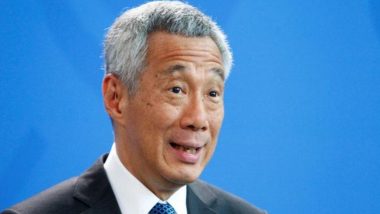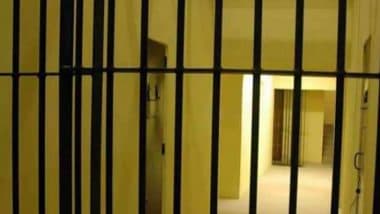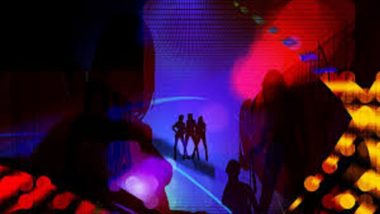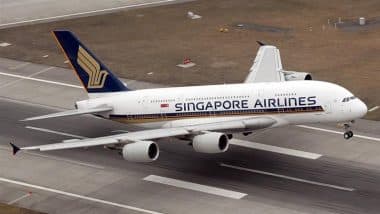Singapore, December 14: Singapore has approved the COVID-19 vaccine developed by American pharmaceutical giant Pfizer and German firm BioNTech and the first shipment will arrive by the end of this month, Prime Minister Lee Hsien Loong announced on Monday.
Lee, in a televised address on Singapore's COVID-19 situation, said the Health Sciences Authority (HSA) approved the Pfizer-BioNTech vaccine after studying the scientific evidence and clinical trial data.
He said other vaccines are also expected to arrive in the coming months, and the country “will have enough vaccines for everyone” by the third quarter of next year if all goes according to plan, the Channel News Asia reported. "Everyone who wants a vaccination should be able to get one by the end of next year," the prime minister said. Also Read | Donald Trump Rejects Early COVID-19 Vaccinations for White House Staff.
The Health Ministry has established a committee of doctors and experts to recommend a vaccination strategy, he said, adding that the panel has proposed that the entire adult population should be vaccinated, but to make vaccinations voluntary.
Priority will be given to those at greatest risk, such as frontline and healthcare workers, and the elderly and vulnerable, he said. Vaccinations will be free for all Singaporeans as well as long-term residents currently in Singapore, he said.
He said he and some older Cabinet ministers will be vaccinated early to show Singaporeans, especially seniors, that the vaccines are safe, the daily reported.
The prime minister also announced that the Phase 3 of Singapore's reopening will start on December 28. Social gatherings of up to eight people will be allowed in public, up from five currently. Similarly, households can receive up to eight visitors.
“So, eight people can dine out together, or visit someone's home. This will make it easier to hold family get-togethers during the festive period,” said Lee. Singapore will also ease capacity limits in public places like malls, attractions (local places to visit) and places of worship. People would be allowed to gather up to 250 in multiple zones of up to 50 people each. As of now, a maximum of 100 people are allowed to gather. South Korea Shuts Down Schools in Seoul & Neighbouring Areas as COVID-19 Cases Soars.
However, the prime minister urged Singapore residents to not to let their guard down, as COVID-19 is “most likely still circulating silently within our community”.
Lee cautioned that the “battle is far from won” around the world, with many countries seeing second, third or fourth waves of coronavirus infections.
Lee said that international borders remain largely closed, but as trade and travel are Singapore's “lifeblood”, its only option is to reopen borders in a controlled and safe way.
“As we do so, we will see more imported (COVID) 19 cases, and there will be some risk of these cases spreading to the community,” he warned. Singapore's situation has improved since March and April when there were more than 1,000 coronavirus cases a day. Now on most days, there are no locally transmitted cases, he said.
Bringing the pandemic under control took “a tremendous effort and some good luck”, said Lee, adding that defences against COVID-19 are now much stronger. Russia Detects Its COVID-19 Patient Zero; What Does 'Patient Zero' Term Mean in Outbreak?.
“Our situation is now stable, but only because everyone has worked so hard and sacrificed so much. Now that vaccines are becoming available, we can see light at the end of the tunnel,” he said.
“As vaccinations become widespread not only in Singapore, but also in our region and the world, we can look forward to resuming more normal lives," Lee said. Coronavirus cases in Singapore have declined to below 10 daily. The city-state has recorded 58,320 cases and 29 deaths.
(This is an unedited and auto-generated story from Syndicated News feed, LatestLY Staff may not have modified or edited the content body)







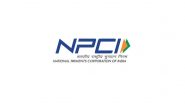


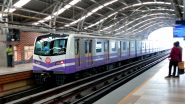


 Quickly
Quickly








